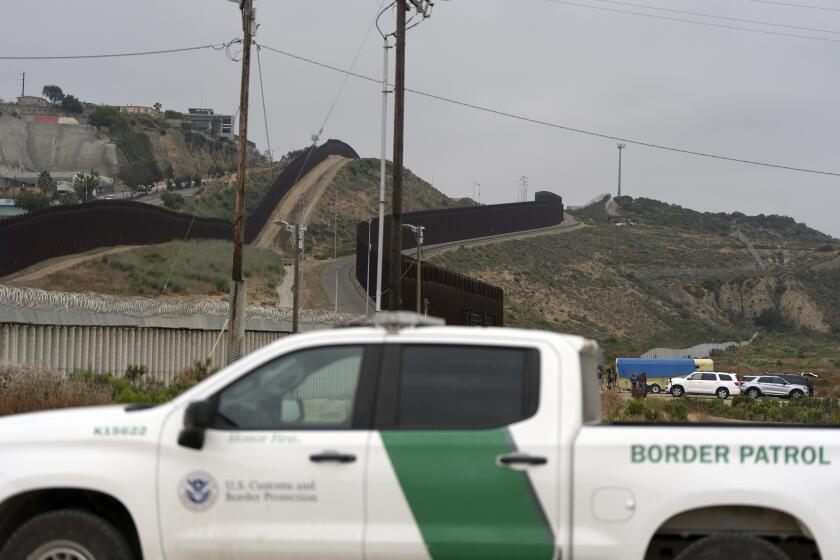Separating politics from patriotism
Phew! The midterms are history.
Out of all the election coverage last week, the quote that stuck with me came from a 28-year-old voter in Miami, who told The Times: “I just want this day to be over. Because it’s been too much political ads, newscasts, too much talking heads. I just want to move on and get this country back.” Likewise, there was the groovy digital graphic in the New York Times that ranked voters’ answers when asked to describe their mood on election day in one word: “Disgusted” was the people’s choice.
The usual reasons given to explain voter disenchantment are feelings of political impotence, dismay over the process or outright alienation from the workings of government. But in a country in which nonvoters routinely outnumber voters in midterm elections — where a wannabe governor can spend most of her adult life not voting — there might be another explanation: love of country.
At least that’s the case with me. Ten years ago, I was a political analyst for a major cable news network. I got paid well. A black Town Car picked me up whenever I had to go into the studio. And when I got there, my task was to respond halfway intelligently to a few important but obvious questions lobbed at me via satellite by a heavily starched, rigidly casual anchorperson on the East Coast.
Back then I enjoyed politics. I didn’t always respect the politicians, but I fundamentally appreciated discussing the imperfect and sometimes arcane process through which we balance the nation’s competing interests. I liked politics because it was a way of apprehending things that mattered, of examining problems, dynamics and aspirations in an understandable shorthand. But starting with the excruciating 2000 presidential election, with its recounts, lawyers and hanging chads, politics became increasingly separate from my love for my country. The horserace, the stratagems, the talking points and the polls replaced real meaning. Barack Obama’s ascendance broke through the cloud, but two years later, it’s just a game again.
Sure, the slickest of the pols and the spinners wrap the machinations in high-minded rhetoric, but it mostly seems like a cynical exercise.
Look at the tsunami of change we voted for last week. According to polls before election day, the public didn’t trust the Republicans to do things right any more than they trusted the Democrats. We voted the former in and the latter out in most states, but do we think it will make a difference? Add in the fact that the electorate doesn’t look much like the population at large — it is older and whiter — and I can’t help feeling that the whole process is dangerously distant from too many people’s lives.
So why bother?
Don’t get me wrong. I voted Tuesday. But I don’t invest much in the outcome. I’d rather not see my country and its democracy caught up in a perennial tantrum, in the same way that I wouldn’t want to witness a loved one in a bar fight or flailing out of control between outsized hope and bitter anger. I don’t want to view this country though the prism of its politics.
For too long, we’ve couched political disengagement in negative moral terms. The shirkers, the reluctant, are portrayed as the ones who don’t “care enough”: They didn’t get off their butts; they wouldn’t step away from their own parochial concerns to take on the fate of the whole.
But maybe they care too much. Politics for the sake of politics is soul crushing. No matter how you ingest it — old media, new media, even on Comedy Central — it’s constricting and constraining, as if you’re being forced to comprehend America solely through Internet comment boards or “Keeping Up With the Kardashians.”
Disengagement is not a permanent solution. How long can a democracy survive if we turn away? But like a baseball fan betrayed by the steroid scandal, it’s going to be awhile before I can reengage with what was once my favorite sport.
grodriguez@latimescolumnists.com
More to Read
Get the L.A. Times Politics newsletter
Deeply reported insights into legislation, politics and policy from Sacramento, Washington and beyond. In your inbox three times per week.
You may occasionally receive promotional content from the Los Angeles Times.










